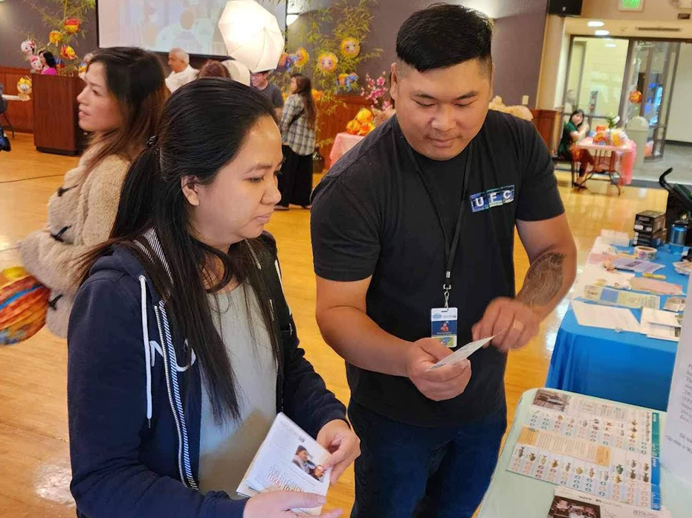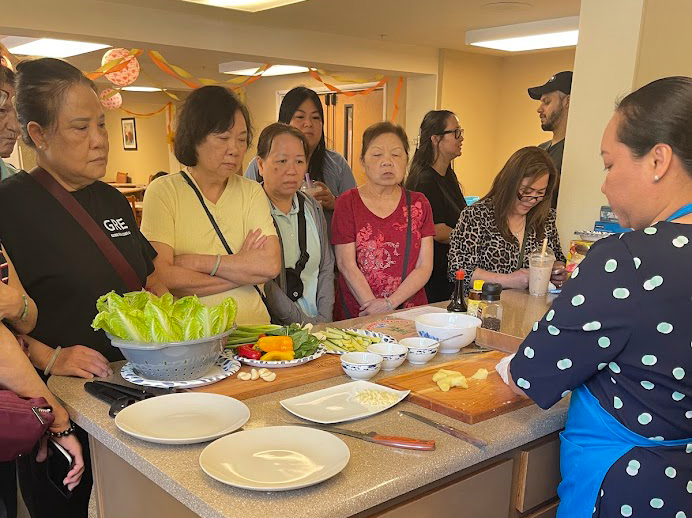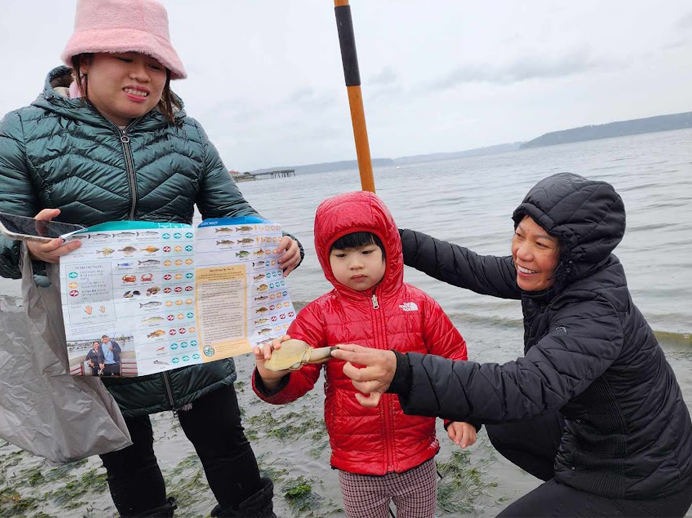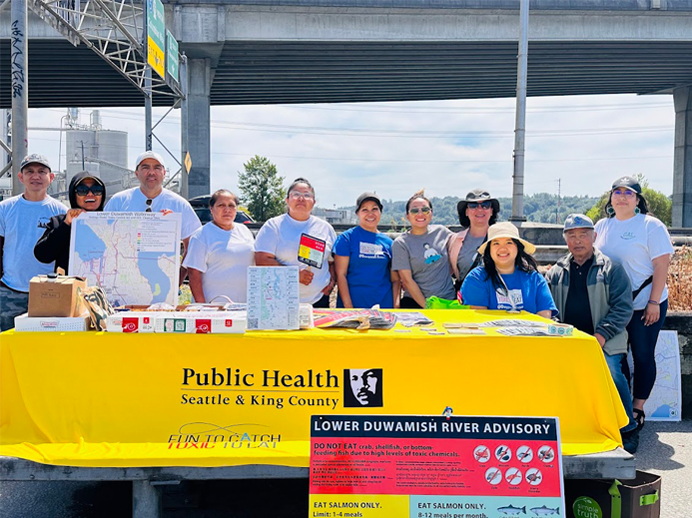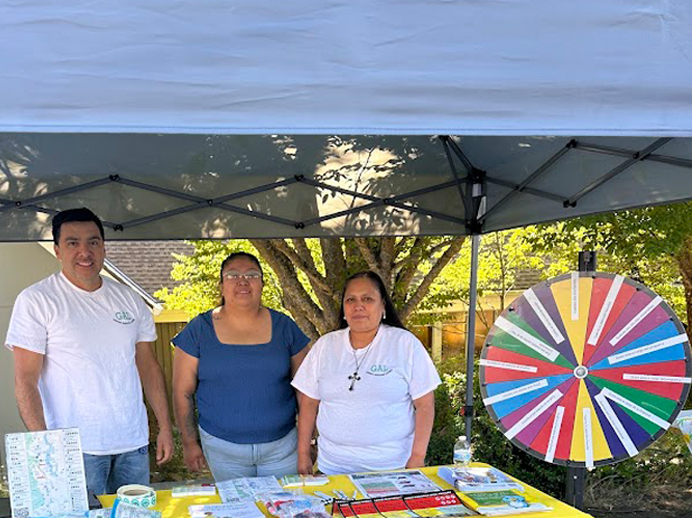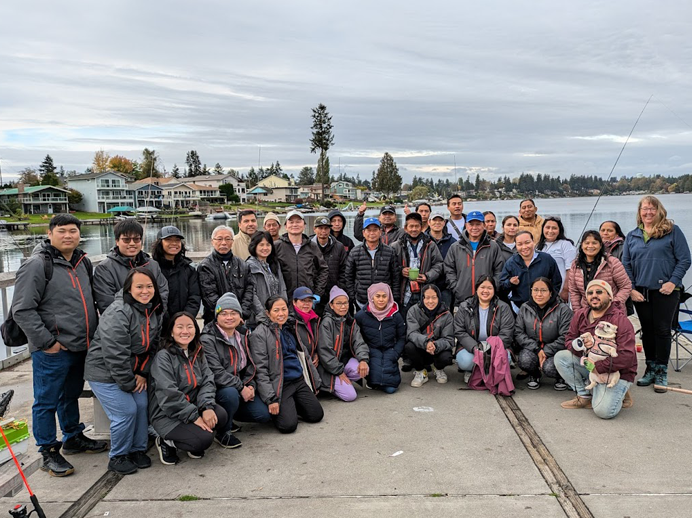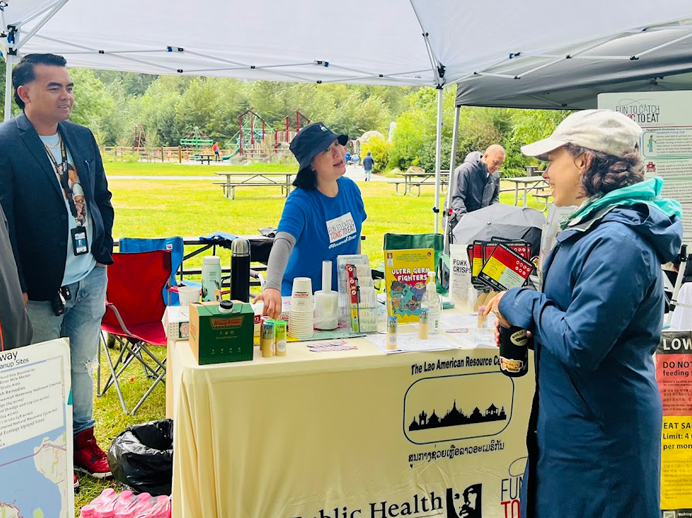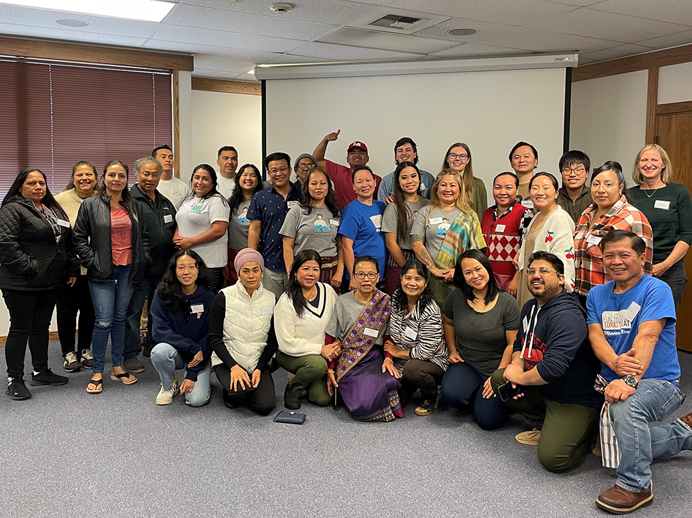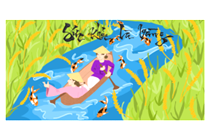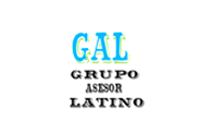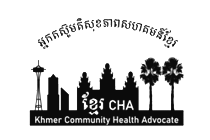Community outreach
About the CHA training model
Based on the Community Health Worker/Promotor Model, where peer health workers reach out to communities that historically face barriers to accessing resources and services, Public Health's training builds on the CHAs' strengths, cultural expertise and self-empowerment, while increasing their capacity (knowledge and skills) to promote healthy seafood consumption actions in their communities.
Community Health Advocates (CHAs)
Role of the Community Health Advocate
- Lead community outreach efforts, such as living room chats, community kitchen cooking demos, boat tours, youth group discussions, and backyard gatherings.
- Work with Public Health to co-design culturally appropriate health promotion and outreach tools.
- Provide recommendations to agency and program decision-makers, such as at EPA's Healthy Seafood Consumption Consortium and Public Health's Community Steering Committee for this Program.

Promoting safe seafood consumption for the Lower Duwamish River Superfund Site
The Program's community-based approach
This program reflects the Environmental Justice principles:
- Capacity Building – hire and train community members to conduct peer outreach.
- Meaningful Involvement – design tools and plans with community input.
- Empowerment – support the community's voice in decision-making on this issue.
In 2018, in partnership with ECOSS and Just Health Action, Public Health trained Community Health Advocates (CHAs) from the Cambodian, Vietnamese, and Latino fishing communities to help design and implement culturally appropriate outreach and tools.
Public Health also convenes a Community Steering Committee with CHAs and other community representatives to capture community input during the planning, implementation and evaluation of the Program.
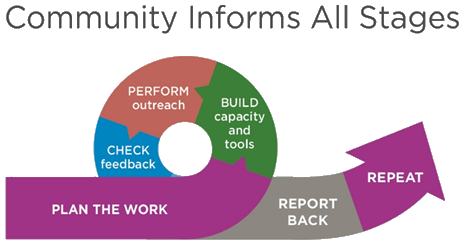
The Institutional Control Implementation and Assurance Plan (ICIAP)
The Institutional Control Implementation and Assurance Plan (ICIAP) serves as a "living road map" that guides the work of this Fun to Catch, Toxic to Eat program toward its goal. This plan describes the key strategies to promote healthy seafood consumption that can be carried out within the scope of the program. In addition, the ICIAP has recommendations for partnerships to address additional barriers that are outside the scope of the EPA's program.
This plan is based on valuable input from the Community Steering Committee (June 2018 – May 2019) — made up of members from the Vietnamese, Cambodian, and Latino fishing communities. This ICIAP will be updated based on evaluation, monitoring, and community input throughout the cleanup process of the Lower Duwamish Waterway Superfund site.
US EPA's ICIAP for Seafood Consumption at the Lower Duwamish Waterway (LDW) Superfund Site
 Translate
Translate
